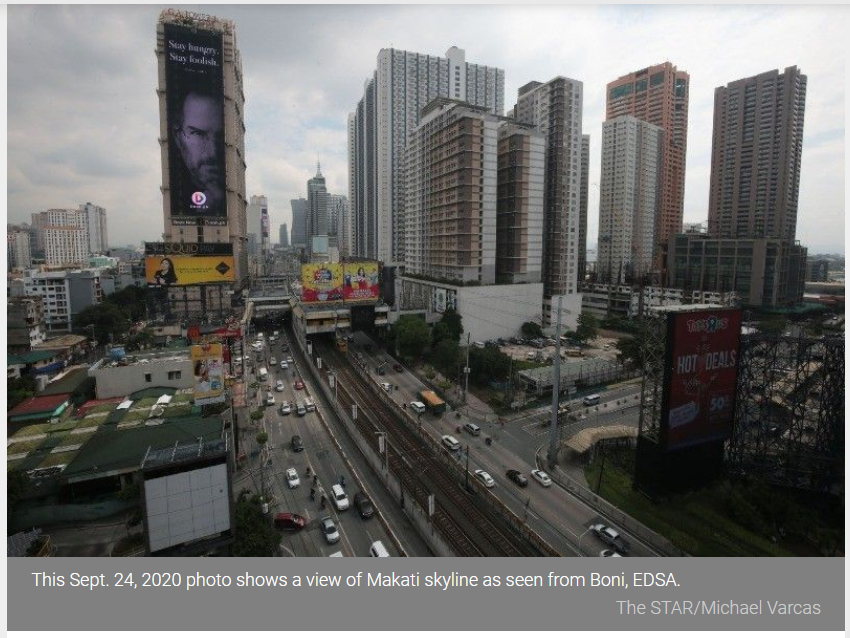Investment grade at risk after Fitch turns ‘negative’ on Philippines
MANILA, Philippines (Update 1, July 13, 2021 9:23 a.m.) — The Philippines’ hard-earned credit rating that the Duterte administration tried to protect by limiting pandemic spending is now at risk of being downgraded, as the health crisis is seen leaving deep economic scars.
Global debt watcher Fitch Ratings on Monday downgraded its outlook on the Philippines from “stable” to “negative”. This means there are chances that the country’s credit rating — which Fitch kept at investment grade “BBB” — could be downgraded over the next 18 to 24 months.
If that happens, the Philippines would see its first credit rating downgrade in 16 years. The last time the country’s credit rating was crushed was in 2005 amid a political crisis during the administration of Gloria Macapagal-Arroyo.
A downward revision of the credit rating would have serious repercussions on the Philippines. For one, a lower rating would make borrowing money offshore more expensive for both the government and Philippine companies at a time they are tapping the debt market to raise funds for their pandemic response. A downgrade could also affect the country’s appeal to foreign investors.
Explaining its decision, Fitch said the negative outlook “reflects increasing risks to the credit profile from the impact of the pandemic and its aftermath on policy-making as well as on economic and fiscal out-turns.”
“Fitch believes there are downside risks to medium-term growth prospects as a result of potential scarring effects, and possible challenges associated with unwinding the exceptional policy response to the health crisis and restoring sound public finances as the pandemic recedes,” Fitch said. A “sustained rise” in government debt, as a share of the economy, is among the risks that could trigger a credit rating downgrade, it added.
Warnings of potential economic scarring have long been raised by several economists, who have argued that such a disaster could be prevented if only the Duterte administration would unleash a convincing fiscal response to the health crisis. But so far those calls have fallen on deaf ears, with economic managers insisting on “preserving fiscal stamina” and shunning calls for bigger stimulus packages over fears of incurring wide budget deficits.
As the Philippines’ pandemic needs grow, Fitch forecast the budget deficit to balloon to 8.8% of gross domestic product this year, albeit lower than the government’s own projection of 9.4%, on expectations of higher state spending to power up the economy from a record-breaking 9.6% collapse last year.
More borrowings are needed to bridge the fiscal gap. As of first quarter this year, outstanding government debt, as a share of the economy, already climbed to 60.4%, breaching the 60 percent-threshold that is globally considered manageable. As obligations pile up, Fitch projects the debt-to-GDP ratio, a gauge of the government’s ability to settle its liabilities, to rise to 52.7% and 54.5% this year and next, respectively.
But Fitch said the economy is still bound to underperform despite the wider deficits and growth of debt. The credit rating agency expects full-year GDP growth of 5.0% this year, lower than its earlier forecasts. This was even more pessimistic than the Duterte administration’s watered-down forecast of 6-7% growth this year.
Reacting to Fitch’s move, Finance Secretary Carlos Dominguez III said the negative impact of the pandemic on the local economy should prove “temporary.”
“In fact, the economy is already en route to a solid recovery path and is seen to have posted double-digit growth in the second quarter of this year amid the fast-track implementation of the vaccine rollout and economic recovery measures,” Dominguez said in a statement.
Bangko Sentral ng Pilipinas Governor Benjamin Diokno agreed with Dominguez. “We expect the drag caused by COVID-19 on the Philippine economy to be transitory,” Diokno said.
Source: https://www.philstar.com/business/2021/07/12/2112030/philippines-investment-grade-risk-after-fitch-turns-negative


 English
English




